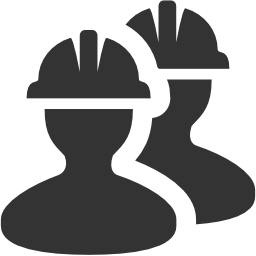What is a Union?
A union is an organized group of workers who come together to make decisions about the conditions of their work.

Having support from the union to ensure fair treatment in the workplace is one of the key reasons people join. Many of the benefits and protections workers enjoy today came about as a result of union efforts. These include the minimum wage, social security payments, an eight hour day and weekends, overtime pay, the Americans with Disabilities Act, and the Occupational Safety and Health Act, which requires employers to meet safety standards for their workers. For more information about unions, go to the AFL-CIO website or visit the UC Berkeley Labor Center website.
Through union membership, workers can impact wages, work hours, benefits, workplace health and safety, and other work-related issues. Under U.S. law, workers of all ages have the right to join a union.
Young people and unions
Most young people who join a union enjoy higher wages than those who do not have union representation.
In addition, some unions have won benefits that are especially useful for young workers, such as:
- Tuition reimbursement
- Educational leaves of absence
- Greater freedom with dress codes
- Greater freedom with hair styles
Unions can also help new workers learn effective strategies for protecting their rights on the job.
Joining a Union
There may already be a union which represents the workers at your workplace. Some workplaces require all the workers hired to become union members and some workplaces do not. You can ask your boss or your co-workers if there is a union at your job and which one it is. To cover the costs of running an organization, each member must pay monthly dues.
If there is a union at your job, find out what your rights are. Contact the union or shop steward (a fellow worker who has been elected to help other workers with union issues) and ask for a copy of your union contract. This is a contract between the union and your employer. It will detail your rights and benefits.

